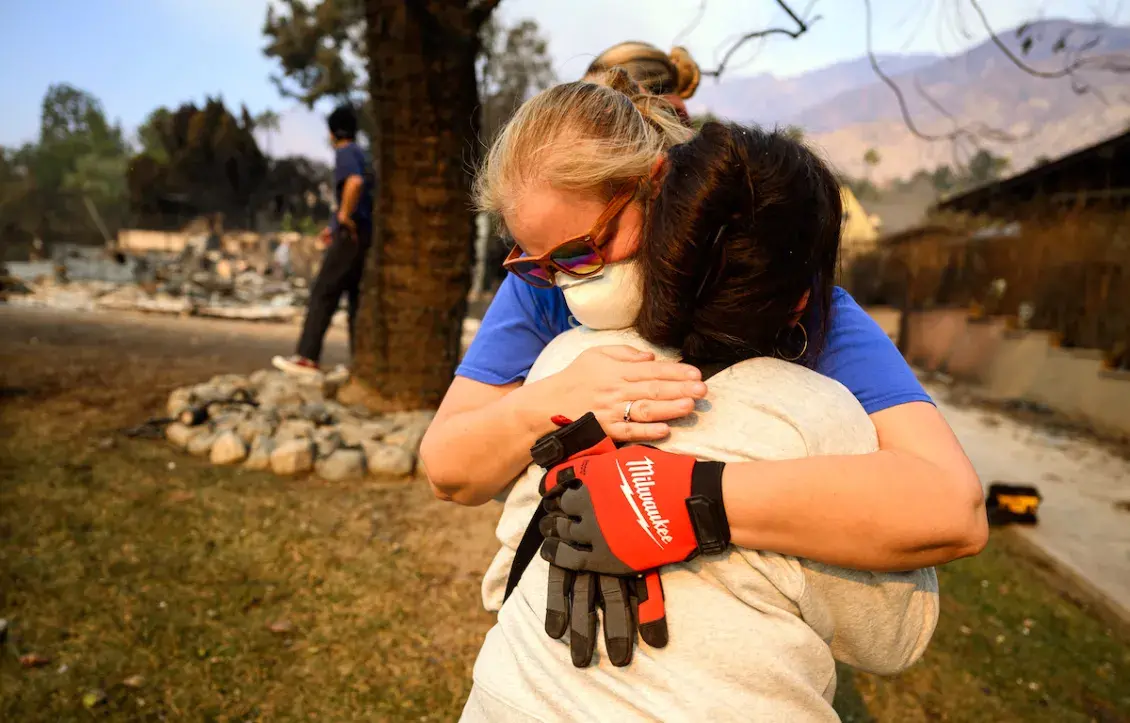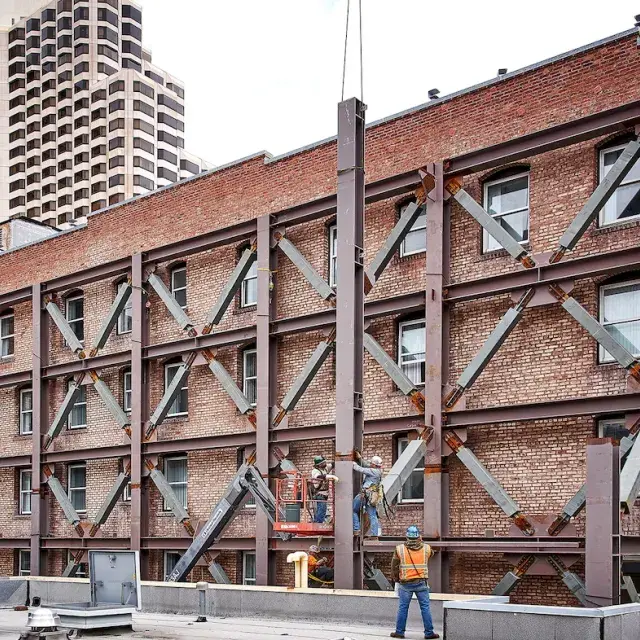As affordable housing advocates and Angelenos, our hearts are with everyone who has suffered from the recent wildfires. The loss and displacement weigh heavy, and our immediate focus remains to ensure everyone has a place to shelter and sleep.
We’re also aware of the urgent need to begin planning rebuilding efforts across greater Los Angeles – even while residents, businesses, and workers assess the damage. Delays in planning could result in prolonged displacement, permanent loss of wealth, and rising housing costs. The earlier we think about rebuilding—and the sooner we ensure that communities prioritize affordability, inclusivity, and resiliency—the more stable and sustainable our outlook.
We’re already seeing signs of destabilization in the aftermath. Allegations of rent gouging are surging, homeowners are questioning insurance coverage, and renters, especially those with low incomes, are typically the last to receive assistance. These challenges will only intensify in a region already struggling with high housing costs and record-breaking homelessness.
Estimates of property losses are already reaching tens of billions of dollars, but the loss extends beyond buildings. Entire communities that had worked for decades to create diverse, thriving neighborhoods—such as Altadena, where Black middle-class families fought against redlining and housing discrimination—are at risk of being permanently displaced. The challenge isn’t just rebuilding homes and businesses; it’s restoring communities that have taken years to develop.
Why talk about rebuilding now? Because decisions made today will shape Southern California for years to come. The longer people are displaced, and the slower recovery resources are distributed, the less likely people are to return—and when they do, it’s possible (if not likely) that they’ll be wealthier and less representative of the community’s diversity before the disaster. Planning for an equitable recovery must begin immediately to avoid further loss and displacement.
That’s why we call for a bipartisan, inclusive vision for rebuilding Los Angeles County based on three key pillars.
Rebuild Affordably and Center the Community
This is a critical moment to rebuild with affordability at the center. In the wake of hurricanes, fires, and floods, home prices and rents typically rise. But that’s not inevitable or ethical.
Research from Enterprise and others examined how four Colorado counties used federal disaster recovery funds to prioritize affordable housing. These efforts kept rent growth 4-6% lower than in places without the funding. Ensuring that recovery funds go toward affordable housing and renter protections will help prevent further rent spikes and displacement, providing a foundation for sustainable, diverse communities.
Ensure Climate Resilience in Rebuilding Efforts
As we look ahead, we must ensure that investments in recovery are resilient to climate disasters. The Santa Ana winds in January were a stark reminder that extreme weather can strike unexpectedly. By leveraging data on climate risk, we can identify which communities are most vulnerable and update building codes accordingly. This includes using more resilient materials and designing structures that withstand future storms, fires, and other natural disasters.
Preparing communities for these challenges today will help minimize future damage and protect families from the growing impacts of climate change.
Streamline the Recovery Process and Avoid Bureaucratic Hurdles
The recovery process must be fast and efficient. Over-regulation has long hindered our ability to build and preserve affordable housing in California and across the country. Research shows that delays caused by red tape and excessive regulation can drive up costs and slow recovery efforts.
Governor Newsom and state policymakers are already working to fast-track recovery efforts and untangle bureaucratic barriers. Similarly, federal policymakers must avoid actions that would unnecessarily raise labor and supply costs and make recovery even more difficult.
We support the swift emergency actions of Governor Newsom, the Los Angeles County Board of Supervisors, Mayor Bass, and other local leaders in addressing immediate needs. But to ensure long-term success, we must take proactive steps to build a resilient and equitable future. Supporting both middle- and upper-class homeowners and low- to moderate-income renters is not mutually exclusive. We can—and must—do both.
Now is the time for state and federal policymakers to commit to an intentional, inclusive, and resilient recovery plan that ensures an affordable and sustainable future for all Angelenos. Failing to act quickly and strategically will only make the road to recovery more difficult and costly in the years to come.

